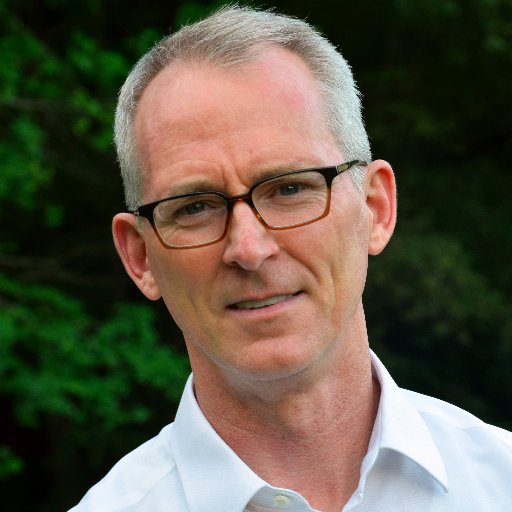When Bob Inglis, former Republican U.S. representative for South Carolina’s 4th district, ran for his seventh year in office, his 18-year-old son told him he would vote for him on one condition: if Inglis “cleaned up his act” and took a stance on climate change. This was one step of a metamorphosis Inglis underwent to become a conservative politician passionate about climate change.
“I dismissed climate change as a figment of our imagination for six years,” Inglis said. “That was pretty ignorant: We conservatives with shrinking science denial are just going to change the subject. Now, conservatives are beginning to realize the strength of their own principles.”
At 10:45 a.m. Monday, July 4, in the Amphitheater, Inglis will incorporate core principles from his organization republicEn in his lecture to discuss climate change from a conservative perspective. His lecture launches the Chautauqua Lecture Series Week Two theme “The Wild: Reconnecting with Our Natural World.”

Inglis is the founder and executive director of republicEn, an educational initiative based at George Mason University that aims to combat climate change and enlighten conservatives about the true cost of carbon emissions.
With over 10,000 conservative voices, republicEn strives to inspire Republicans to act on climate change through free enterprise solutions in a movement called the EcoRight.
“America is an indispensable nation; conservatives are the indispensable parties,” Inglis said. “Finding a solution to climate change won’t be done without America. America won’t act without conservatives being on board. republicEn is encouraging conservatives to overcome that idea they believe to be false.”
After a life-changing trip to Antarctica and the Great Barrier Reef in 2009, Inglis became inspired to protect the environment and use his position in Congress to advocate for climate change.
In 2010, he ran in the South Carolina primaries as a Republican with climate change initiatives on his ticket. He introduced the Raise Wages, Cut Carbon Act in 2009, which called for an implementation of a revenue-neutral carbon tax in exchange for equal cuts in payroll taxes. The introduction of this legislation ultimately lost Inglis his congressional seat.
Inglis launched the Energy and Enterprise Initiative at GMU in 2012, which, two years later, evolved into the grassroots organization republicEn. The “En” in the name stands both for energy and enterprise. Inglis received the 2015 John F. Kennedy Profile in Courage Award for his leading voice in conservative climate change initiatives. He held a resident fellowship at Harvard University’s Institute of Politics in 2011, a visiting fellowship in energy at Duke University’s Nicholas School of the Environment in 2012, and a resident fellowship at the University of Chicago’s Institute of Politics in 2014.
Inglis believes that economics, and not regulation or incentives, is the way to approach the discussion on climate change.
“(Pricing) is the way to make accountability for the side effects of burning fossil fuels worldwide,” he said. “As a result, 7 billion people will start seeing the true cost of burning fossil fuels, because that cost will be reflected in the price of the products.”
The biggest challenge in educating conservatives about the true cost of climate change is validating Republican voices in a left-controlled conversation, according to Inglis.
“Using the right language, and having validators? That’s the challenge,” he said. “The language of the left has dominated the climate conversation. The language of the right is a language of energy abundance and innovations through free enterprise. We just have completely different languages and, then, completely different validators.”
Inglis hopes to bring conservatives to the climate change conversation in order for the left and right to work toward progress.
“What’s so exciting about conservatives in climate change conversations is that you have people with the liberty of enlightened self-interest pursuing their self-interest,” Inglis said. “That will lead to innovation very rapidly.”
Carbon emissions and mass burning of fossil fuels may have already done irreparable damage, but Inglis continues to push for climate change measures that will mitigate future harm to the planet.
“I’m fond of saying we better hope it’s human caused,” he said. “To any cause, we have got some hope. If it’s not, we’re toast. Climate change is human caused. So it’s really good news.”




